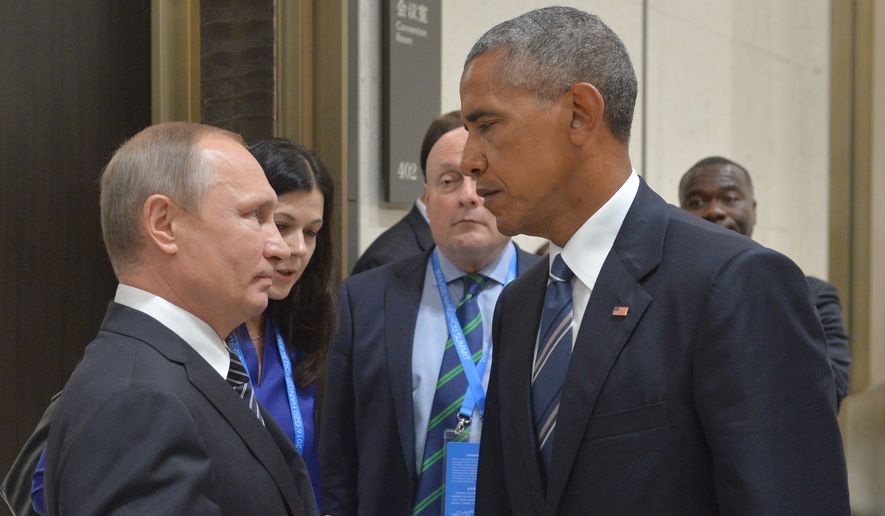In a sign of rapidly worsening relations, the Obama administration suspended talks with Russia Monday over Syria’s civil war, while Moscow halted cooperation with the U.S. on a program for disposal of weapons-grade plutonium.
The U.S. stopped diplomatic efforts with Russia amid renewed attacks by Russian and Syrian forces on the city of Aleppo. Administration officials acknowledged that Syrian President Bashar al-Assad is making territorial gains with Moscow’s help after the collapse of a ceasefire.
“This is not a decision that was taken lightly,” State Department spokesman John Kirby said. “Unfortunately, Russia failed to live up to its own commitments … and was also either unwilling or unable to ensure Syrian regime adherence to the arrangements to which Moscow agreed.”
At the White House, press secretary Josh Earnest said President Obama has run out of patience with Russian President Vladimir Putin.
“I think everybody’s patience with Russia has run out,” Mr. Earnest said. “There is nothing more for the United States and Russia to talk about with regard to trying to reach an agreement that would reduce the violence inside of Syria. And that’s tragic.”
The president’s spokesman acknowledged that Syrian and Russian forces have “enjoyed some limited gains” in the war by bombing civilian populations, while failing to advance Mr. Putin’s stated objective of crushing Islamic State extremists.
As Mr. Obama’s thin hope of a diplomatic solution in Syria evaporated, the White House also said it was “disappointed” that Mr. Putin was pulling out of a joint agreement with the U.S. to reduce plutonium stockpiles.
Mr. Putin’s decree cited Washington’s “unfriendly actions” and the U.S. inability to fulfill its obligations under the 2000 deal as reasons for the move. Under the agreement, which was expanded in 2006 and 2010, Russia and the U.S. each were to dispose of 34 metric tons of weapons-grade plutonium, enough material for about 17,000 nuclear warheads.
— This article is based in part on wire-service reports.
• Dave Boyer can be reached at dboyer@washingtontimes.com.




Please read our comment policy before commenting.